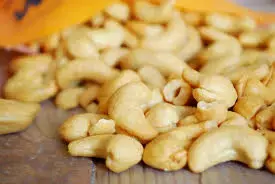- Home
- Medical news & Guidelines
- Anesthesiology
- Cardiology and CTVS
- Critical Care
- Dentistry
- Dermatology
- Diabetes and Endocrinology
- ENT
- Gastroenterology
- Medicine
- Nephrology
- Neurology
- Obstretics-Gynaecology
- Oncology
- Ophthalmology
- Orthopaedics
- Pediatrics-Neonatology
- Psychiatry
- Pulmonology
- Radiology
- Surgery
- Urology
- Laboratory Medicine
- Diet
- Nursing
- Paramedical
- Physiotherapy
- Health news
- Fact Check
- Bone Health Fact Check
- Brain Health Fact Check
- Cancer Related Fact Check
- Child Care Fact Check
- Dental and oral health fact check
- Diabetes and metabolic health fact check
- Diet and Nutrition Fact Check
- Eye and ENT Care Fact Check
- Fitness fact check
- Gut health fact check
- Heart health fact check
- Kidney health fact check
- Medical education fact check
- Men's health fact check
- Respiratory fact check
- Skin and hair care fact check
- Vaccine and Immunization fact check
- Women's health fact check
- AYUSH
- State News
- Andaman and Nicobar Islands
- Andhra Pradesh
- Arunachal Pradesh
- Assam
- Bihar
- Chandigarh
- Chattisgarh
- Dadra and Nagar Haveli
- Daman and Diu
- Delhi
- Goa
- Gujarat
- Haryana
- Himachal Pradesh
- Jammu & Kashmir
- Jharkhand
- Karnataka
- Kerala
- Ladakh
- Lakshadweep
- Madhya Pradesh
- Maharashtra
- Manipur
- Meghalaya
- Mizoram
- Nagaland
- Odisha
- Puducherry
- Punjab
- Rajasthan
- Sikkim
- Tamil Nadu
- Telangana
- Tripura
- Uttar Pradesh
- Uttrakhand
- West Bengal
- Medical Education
- Industry
Cashew shell compound may reverse demyelination in MS: Study

Many neurological disorders stem from damage to myelin, the insulating material which wraps around nerves and provides optimal nerve conduction. We previously found that IL-33, a chemical made in response to injury, was able to induce new myelin formation.
In laboratory experiments, a chemical compound found in the shell of the cashew nut promotes the repair of myelin, a team from Vanderbilt University Medical Center reports today in the Proceedings of the National Academy of Sciences.
Myelin is a protective sheath surrounding nerves. Damage to this covering -- demyelination -- is a hallmark of multiple sclerosis and related diseases of the central nervous system.
"We see this as an exciting finding, suggesting a new avenue in the search for therapies to correct the ravages of MS and other demyelinating diseases," said the paper's senior author, Subramaniam Sriram, MBBS, William C. Weaver III Professor of Neurology and chief of the Division of Neuroimmunology.
Previous work led by Sriram showed that a protein called interleukin 33, or IL-33, induced myelin formation. IL-33 is, among other things, an immune response regulator, and multiple sclerosis is an autoimmune disorder.
The cashew shell compound is called anacardic acid. Sriram and team grew interested in it because it's known to inhibit an enzyme involved in gene expression called histone acetyltransferase, or HAT, and the team had discovered that whatever inhibits HAT induces production of IL-33.
The report includes a range of new findings that point to potential therapeutic use of anacardic acid for demyelinating diseases:
- In vitro, the addition of the compound to rat cells most responsible for myelination -- oligodendrocyte precursor cells, or OPCs -- spurred induction of IL-33 and rapidly increased the expression of myelin genes and proteins, including dose-dependent increases in myelin basic protein;
- In two animal models of demyelination, treatment with the compound increased the relative presence of IL-33-expressing OPCs and led to reduced paralysis;
- In an animal model of demyelination treated with the compound, dissection and electron microscopy showed dose-dependent increases in myelination.
"These are striking results that clearly urge further study of anarcardic acid for demyelinating diseases," Sriram said.
Hina Zahid Joined Medical Dialogue in 2017 with a passion to work as a Reporter. She coordinates with various national and international journals and association and covers all the stories related to Medical guidelines, Medical Journals, rare medical surgeries as well as all the updates in the medical field. Email: editorial@medicaldialogues.in. Contact no. 011-43720751
Dr Kamal Kant Kohli-MBBS, DTCD- a chest specialist with more than 30 years of practice and a flair for writing clinical articles, Dr Kamal Kant Kohli joined Medical Dialogues as a Chief Editor of Medical News. Besides writing articles, as an editor, he proofreads and verifies all the medical content published on Medical Dialogues including those coming from journals, studies,medical conferences,guidelines etc. Email: drkohli@medicaldialogues.in. Contact no. 011-43720751


